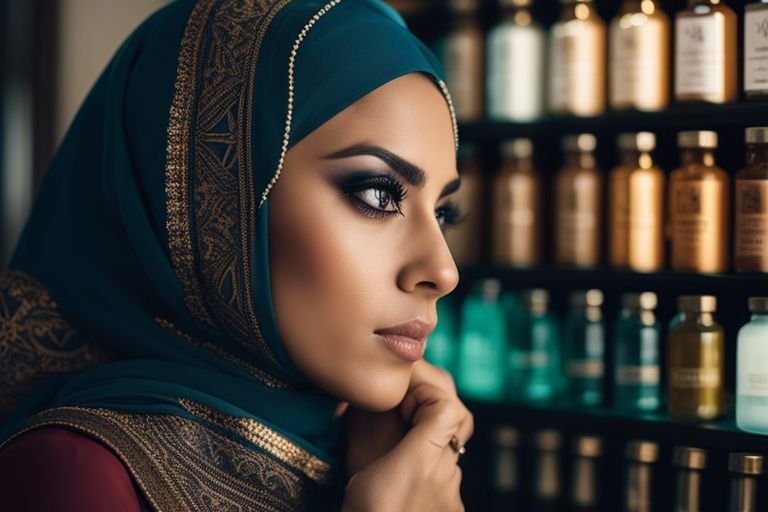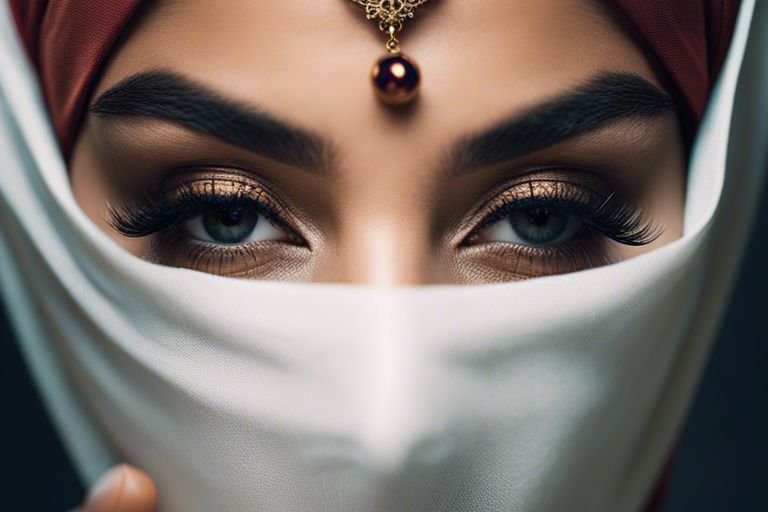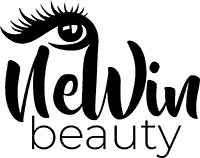When it comes to eyelash products, the ethical considerations around halal and haram ingredients are crucial for many consumers. Halal refers to products that are permissible for use in Islam, while haram denotes items that are forbidden. Understanding the ingredients used in eyelash products is essential, as some may contain alcohol, animal-derived collagen, or other ingredients that may not align with certain ethical beliefs. Consumers need to be informed about the potential dangers of using non-halal eyelash products, such as allergic reactions, skin irritation, or unknowingly supporting unethical practices. By making conscious choices and opting for halal-certified eyelash products, individuals can ensure they are aligning with their ethical values while also prioritising their health and well-being.
Key Takeaways:
- Eyelash products: The ethical debate surrounding eyelash products revolves around whether the ingredients and manufacturing processes are halal or haram.
- Halal certification: Consumers are increasingly seeking halal-certified products, including eyelash enhancers, to align with their religious beliefs.
- Animal-derived ingredients: Some eyelash products contain ingredients derived from animals, leading to concerns about their halal status.
- Manufacturing practices: The ethical dilemma extends to the production methods used to create eyelash products, as certain practices may be deemed haram.
- Alternative options: Halal-conscious consumers are exploring natural and vegan alternatives to traditional eyelash products to ensure compliance with their beliefs.
- Transparency and education: Brands are urged to be transparent about their ingredients and processes, while consumers are encouraged to educate themselves about halal principles.
- Personal choice: Ultimately, the decision to use halal or haram eyelash products is a personal one, influenced by individual beliefs and values.
Understanding Eyelash Products
Before delving into the ethical debate surrounding eyelash products, it is important to have a clear understanding of the various types of products available in the market, as well as the ingredients commonly found in them.
Types of Eyelash Products
There are several types of eyelash products that are commonly used to enhance the appearance of eyelashes. These include eyelash serums, eyelash extensions, eyelash tinting kits, eyelash curlers, and eyelash growth mascaras. Recognising the differences between these products is crucial in making informed decisions about their usage.
- Eyelash serums – applied to promote the growth and thickness of eyelashes.
- Eyelash extensions – individual synthetic lashes applied to natural lashes for a fuller look.
- Eyelash tinting kits – used to darken the colour of lashes for a more defined look.
- Eyelash curlers – mechanical devices used to curl eyelashes for a lifted appearance.
- Eyelash growth mascaras – formulated to condition and lengthen lashes over time.
Recognising the differences between these eyelash products can help individuals choose the most suitable product for their desired outcome and needs.
Ingredients Commonly Found in Eyelash Products
Many eyelash products contain a variety of ingredients that are designed to nourish, strengthen, and enhance the appearance of lashes. Common ingredients found in these products include bimatoprost, keratin, panthenol, hyaluronic acid, and biotin. These ingredients play a key role in the effectiveness and safety of the products.
Importantly, it is essential to carefully read the ingredient list of eyelash products to ensure they do not contain any harmful substances that could potentially cause irritation or damage to the eyes or skin.
| Bimatoprost | Keratin |
| Panthenol | Hyaluronic Acid |
| Biotin |

Halal Certification for Cosmetic Products
The debate surrounding the ethicality of eyelash products has brought attention to the importance of obtaining Halal certification for cosmetic items. Halal certification ensures that the products meet the requirements set by Islamic law, giving consumers the confidence that the items are produced in a way that aligns with their religious beliefs.
The Halal Certification Process
The Halal certification process involves a thorough examination of the ingredients used in the production of cosmetic products. Halal certifying bodies inspect the entire supply chain, from sourcing raw materials to manufacturing and packaging, to certify that Halal standards are met.
Halal certifying bodies often conduct on-site audits and inspections to ensure compliance with Islamic principles. They verify that no haram (forbidden) substances or practices are used during any stage of production.
Criteria for Halal Eyelash Products
When it comes to Halal eyelash products, there are stringent criteria that must be met. These include ensuring that no alcohol or animal-derived ingredients are used in the formulation.
Additionally, manufacturers of Halal eyelash products must ensure that their products do not contain any haram ingredients or by-products. This meticulous process guarantees that Muslim consumers can confidently use these products without compromising their beliefs.
It is essential for consumers to look for products that are certified Halal to ensure that they are ethically produced and align with Islamic guidelines. By choosing Halal-certified eyelash products, consumers can make informed decisions that resonate with their values.
Ethical and Religious Concerns
When it comes to eyelash products, there are ethical and religious concerns that come into play. Consumers and scholars alike debate whether these products are halal or haram, especially when considering the ingredients used and the practices involved in their production.
Animal-Derived Ingredients in Eyelash Products
Many eyelash products contain animal-derived ingredients such as keratin, beeswax, or collagen. While these ingredients are common in the beauty industry for their effectiveness, they raise concerns among those who follow a halal or vegan lifestyle. The use of animal-derived ingredients in eyelash products can pose ethical dilemmas for consumers. It is essential for individuals to carefully read product labels and do research to ensure the products align with their ethical and religious beliefs.
Ethical Implications of Animal Testing
Another area of concern in the beauty industry is the ethical implications of animal testing. Many companies test their products, including eyelash products, on animals to ensure safety and efficacy. This practice has sparked outrage among animal rights activists and those who oppose the cruelty involved in animal testing. The use of animals in testing cosmetics raises moral questions regarding the treatment of animals for human benefit.
It is important for consumers to support brands that are cruelty-free and do not engage in animal testing. By choosing products that are certified as cruelty-free, individuals can contribute to the movement towards more ethical practices in the beauty industry.

Consumer Awareness and Preferences
The Demand for Ethical Eyelash Products
Consumer awareness regarding the ethical implications of eyelash products has been steadily increasing in recent years. There is a growing demand for products that are halal and cruelty-free. Many consumers are actively seeking alternatives to traditional eyelash products that may not align with their ethical values. This shift in consumer preferences has led to an emergence of brands specifically catering to this demand, offering a range of ethical eyelash products.
In response to this demand, the beauty industry has witnessed a surge in the production of halal-certified and cruelty-free eyelash products. Consumers are becoming more conscious of the impact their choices make and are opting for products that align with their ethical beliefs. This has not only influenced the availability of ethical eyelash products but has also encouraged existing brands to reconsider their production methods to meet the ethical standards desired by consumers.
Impact of Consumer Choices on the Industry
Consumer choices have a substantial impact on the eyelash product industry. The rising demand for ethical eyelash products has forced companies to reevaluate their manufacturing processes and ingredient sourcing. Brands that fail to meet the halal and cruelty-free criteria are at risk of losing market share to competitors who prioritise ethical production methods. This has sparked a wave of innovation in the industry, leading to an increased availability of ethically produced eyelash products for consumers to choose from.
Furthermore, consumer preferences are shaping the future of the eyelash product industry by setting new ethical standards and holding brands accountable for their practices. The power lies in the hands of consumers to drive positive change in the industry by supporting halal and cruelty-free brands and influencing others to follow suit. As consumer awareness continues to grow, the industry is likely to see a shift towards more ethical and sustainable practices overall.

Halal or Haram – The Ethical Debate Surrounding Eyelash Products
As a final point, the ethical debate surrounding eyelash products in terms of being halal or haram is a complex and nuanced issue that requires careful consideration. With differing opinions from religious scholars and experts, it is crucial for individuals to research and make informed decisions based on their beliefs and values. While some argue that certain ingredients or manufacturing processes may render eyelash products haram, others believe that as long as the final product does not contain any impermissible substances, it can be considered halal. Ultimately, it is important for consumers to be conscious of the ethical implications of the products they use and choose those that align with their ethical standards.
FAQ
Q: What are eyelash products?
A: Eyelash products are cosmetic items usually used to enhance the appearance of eyelashes, including mascara, eyelash extensions, and growth serums.
Q: Is it Halal to use eyelash products?
A: The use of eyelash products falls into a grey area in Islamic jurisprudence, and opinions vary among scholars regarding its permissibility. It is recommended to seek guidance from a knowledgeable religious authority.
Q: What makes an eyelash product Haram?
A: An eyelash product may be considered Haram if it contains ingredients derived from animals that were not slaughtered according to Islamic guidelines, such as pork-derived ingredients.
Q: How can I determine if an eyelash product is Halal?
A: To ensure an eyelash product is Halal, look for certifications from recognised Halal certification bodies, check the ingredient list for Haram ingredients, and seek guidance from religious scholars.
Q: Are there Halal alternatives to conventional eyelash products?
A: Yes, there are Halal-certified brands that offer alternatives such as Halal mascara, vegan eyelash extensions, and natural growth serums free from Haram ingredients.
Q: What ethical concerns surround the production of eyelash products?
A: Ethical concerns regarding eyelash products include animal testing, sustainability of ingredients, fair labour practices, and the environmental impact of packaging and disposal.
Q: How can consumers make ethical choices when purchasing eyelash products?
A: Consumers can make ethical choices by supporting brands that are cruelty-free, environmentally conscious, transparent about their sourcing and manufacturing processes, and offer Halal-certified options.
